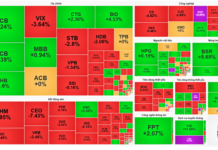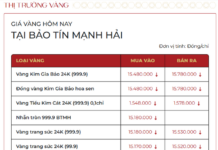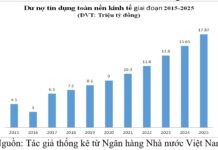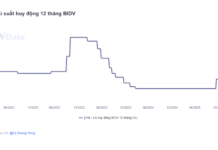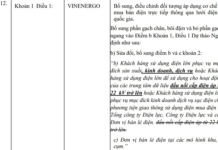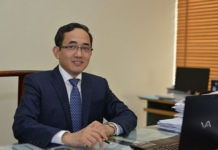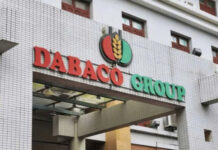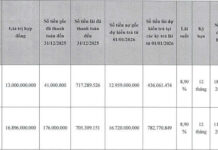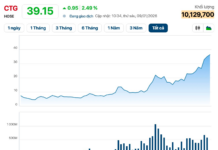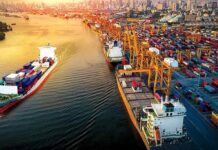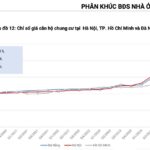Ho Chi Minh City Climbs 10 Spots in Global Financial Centers Index
According to the 38th edition of the Global Financial Centres Index (GFCI), Ho Chi Minh City (HCMC) ranks 95th out of 120 leading global financial centers. This marks the city’s highest position since its debut on the list in 2022.
Specifically, HCMC rose three places from 98th in GFCI 37 to 95th in GFCI 38, overtaking Bangkok (Thailand), which dropped six spots to 102nd.
This consistent upward trajectory demonstrates HCMC’s progress in enhancing its financial competitiveness. Long-term goals have been set, with Vietnam aiming for the International Financial Center – Ho Chi Minh City (IFC-HCM) to enter the top 75 global financial centers by 2035, laying the groundwork for further advancements in the coming decades.
The Potential of IFC-HCM
As Vietnam’s economic powerhouse, HCMC possesses all the necessary conditions to emerge as a prominent financial hub. Contributing approximately 23% of the nation’s GDP, the city is a focal point for key industries such as finance, technology, and services. It hosts numerous leading banks, securities firms, and financial institutions, providing a robust foundation for developing an international financial center. Additionally, its high-quality workforce and world-leading fintech digitalization efforts give HCMC a unique advantage: transaction costs here are significantly lower than in other major global financial centers.
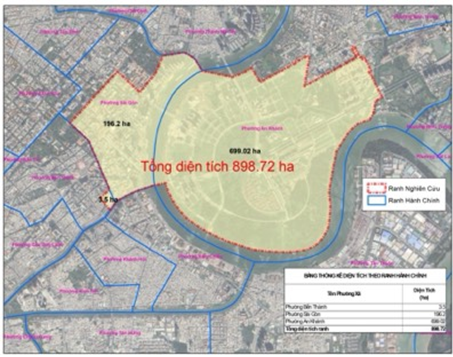
Map of the planned location for the International Financial Center HCMC, encompassing District 1 (Ben Thanh Ward, Saigon Ward) and Thu Thiem New Urban Area (Thu Duc City), totaling 989.72 hectares.
|
The scale of IFC-HCM’s development is equally impressive. The center will span across the former District 1 (including Ben Thanh and Saigon Wards) and extend to Thu Thiem on the other side of the Saigon River, covering approximately 898.72 hectares. The initial 9.2-hectare core area in Thu Thiem will feature modern infrastructure, housing the center’s management and supervisory offices. The HCMC government plans to invest around 7 billion USD in this ambitious project, with an initial phase allocating 16 trillion VND to complete the core area’s infrastructure. With strong central government support, the IFC-HCM development plan was approved in late 2024, targeting operations to begin in 2025. A 29-member Steering Committee, led by the HCMC Party Secretary, was established earlier this year to accelerate this historic initiative.
IFC-HCM is designed as a comprehensive financial ecosystem. It will encompass a full range of sectors, from international banking and capital markets (stocks, bonds, derivatives) to digital assets, asset management, investment funds, insurance, and cutting-edge fintech with advanced digital trading platforms. Even emerging services like commodity exchanges, precious metals trading, carbon credits, green finance, and financial logistics will be included, leveraging Vietnam’s strength as an agricultural export powerhouse. In essence, IFC-HCM is planned to become a “multifunctional” financial hub, where traditional financial services converge with the latest technological trends, creating a unique synergy.
Breakthrough Development Strategy by 2030
To realize its ambition of becoming a high-tech financial center by 2030, HCMC is implementing a bold, synchronized development strategy. This strategy focuses on fostering a superior innovation environment, attracting international capital and talent, and deeply integrating modern technology into all financial activities. Key strategic pillars include:
Open Sandbox for Fintech Innovation: IFC-HCM is pioneering a large-scale sandbox mechanism, allowing fintech startups to test emerging financial products and services in a controlled environment. Bold ideas—from digital currencies and assets to blockchain and AI applications—will be nurtured within the center, even if national regulations have not yet been established. This “open laboratory” positions Vietnam to attract fintech startups and innovative initiatives, creating unique, regionally competitive models. This open sandbox reflects policymakers’ forward-thinking approach: flexible and responsive yet secure, balancing innovation with systemic stability.
Attracting Financial “Eagles” with Unprecedented Incentives: To achieve global prominence, IFC-HCM aims to become an attractive destination for leading investors and financial institutions. The government and HCMC are introducing a range of unprecedented incentives: from substantial tax breaks (corporate income tax benefits for financial companies, personal income tax exemptions for high-skilled experts working at the center) to streamlined visa policies for foreign specialists and their families. Administrative procedures will be maximally simplified under a “one-stop-shop” mechanism, offering unparalleled convenience for investors. IFC membership applications can be submitted online and will be processed within one working day for provisional approval and no more than seven days for formal recognition. This “lightning-fast” approval process is unprecedented compared to traditional timelines. Additionally, Fortune 500 companies will receive automatic membership without evaluation, aimed at attracting true financial “eagles.” All other specific procedures (such as fintech trial licenses) will be handled on-site by the center’s management, avoiding multi-level bureaucratic delays. IFC-HCM is rolling out the red carpet with unparalleled incentives and streamlined procedures, ready to welcome major global capital and financial institutions.
Blockchain and AI as Core Development Pillars: Unlike traditional financial centers, IFC-HCM is positioned as a high-tech financial hub, with blockchain and artificial intelligence (AI) as its strategic pillars. This means all core activities will be powered by the latest technologies: Blockchain will underpin a distributed ledger infrastructure, ensuring transparent, secure transactions and enabling smart contracts across various services. AI will support big data analytics, automate processes, and create smarter financial products. Vietnam views blockchain as one of 11 strategic technologies for the digital economy era and has adopted a legal framework to promote it from 2026. International experts also emphasize the importance of blockchain, digital assets, and fintech as “indispensable components” for future digital financial centers. Additionally, IFC-HCM plans to leverage strategic technologies such as robo-advisors, quantum AI, cloud computing, quantum computing, big data, and quantum blockchain (quantchain) to gain a competitive edge. Within this framework, IFC-HCM will focus on harnessing blockchain and AI to modernize financial services and establish itself as a leading high-tech financial center in the region.
Automation and Smart Management of All Transactions: Widespread technology adoption will enable IFC-HCM to automate many previously manual financial operations, from transactions and payments to management, licensing, and customer service. For instance, blockchain-based digital trading platforms can facilitate nearly instant 24/7 payments and transfers, reducing errors and eliminating traditional intermediaries. AI and machine learning will be integrated into monitoring and risk management systems, enabling real-time market surveillance and early detection of fraud or unusual transactions. On the regulatory front, the center will have a dedicated on-site management and supervisory body, handling all inspections and audits without overlapping external agencies. Concurrently, Vietnam is developing detailed regulations on anti-money laundering, cybersecurity for cryptocurrencies, digital assets, and NFT/token-related activities to mitigate risks associated with new financial technologies. This ensures that even with high automation, the new financial system remains secure and controlled. By 2030, Vietnam aims to establish a globally connected open blockchain infrastructure, ensuring safety, security, and transparency for all transactions while facilitating seamless international capital flows.
Expected Benefits: Safety, Efficiency, and Global Reach: The technology-driven, innovation-focused strategy promises significant benefits for IFC-HCM. First, automating tasks will reduce errors, accelerate transaction processing, and lower operational costs by cutting out intermediaries. Transaction costs in HCMC are already lower than in many other centers, and further digitalization will continue to improve this. Second, transaction security will be enhanced through blockchain’s anti-counterfeiting features and proactive AI monitoring systems, bolstering investor and public confidence in the market. Notably, IFC-HCM will serve as a gateway connecting Vietnam to global financial markets, elevating the nation’s reputation and attracting international capital flows. As an international financial center with advanced technology, HCMC will offer internationally standardized services at competitive costs, attracting more global financial institutions, investment funds, and fintech startups. The ultimate vision is to establish HCMC as a leading international fintech hub, characterized by secure transactions, intelligent services, and continuous innovation. Experts note that developing an international financial center not only has economic significance but also drives institutional reforms, enhances human resource quality, and strengthens Vietnam’s position in global finance. With the right strategy and current momentum, HCMC is poised to turn this vision into reality in the coming decade.
In conclusion, IFC-HCM is emerging as a new symbol of Vietnam on the global financial map—a dynamic, technology-driven international financial center. From its steady rise in global rankings to its ambitious 2030 development strategy, HCMC demonstrates a harmonious blend of international vision and concrete action. If this momentum is sustained, not only investors and fintech businesses but also the public will soon witness HCMC’s transformation into a leading regional financial and technology hub, significantly contributing to Vietnam’s and the region’s prosperity.
– 09:22 29/09/2025
Ho Chi Minh City: Nguyen Duy Trinh Road Project Doubles Capital, Completion Delayed
The upgrade and expansion project of Nguyen Duy Trinh Road (from Ring Road 2 to the entrance of Phu Huu Industrial Zone) has received an increased investment of over 1.859 billion VND, with an expected completion date set for 2028.
Resolving Condominium Disputes: Beyond Patchwork Regulations
According to Dr. Ha Hai, Deputy Head of the Ho Chi Minh City Bar Association, it’s time to confront the reality that disputes in condominiums cannot be resolved through piecemeal regulations. A dedicated legal framework will serve as the cornerstone for safeguarding residents’ rights while fostering a healthy investment environment for businesses.

